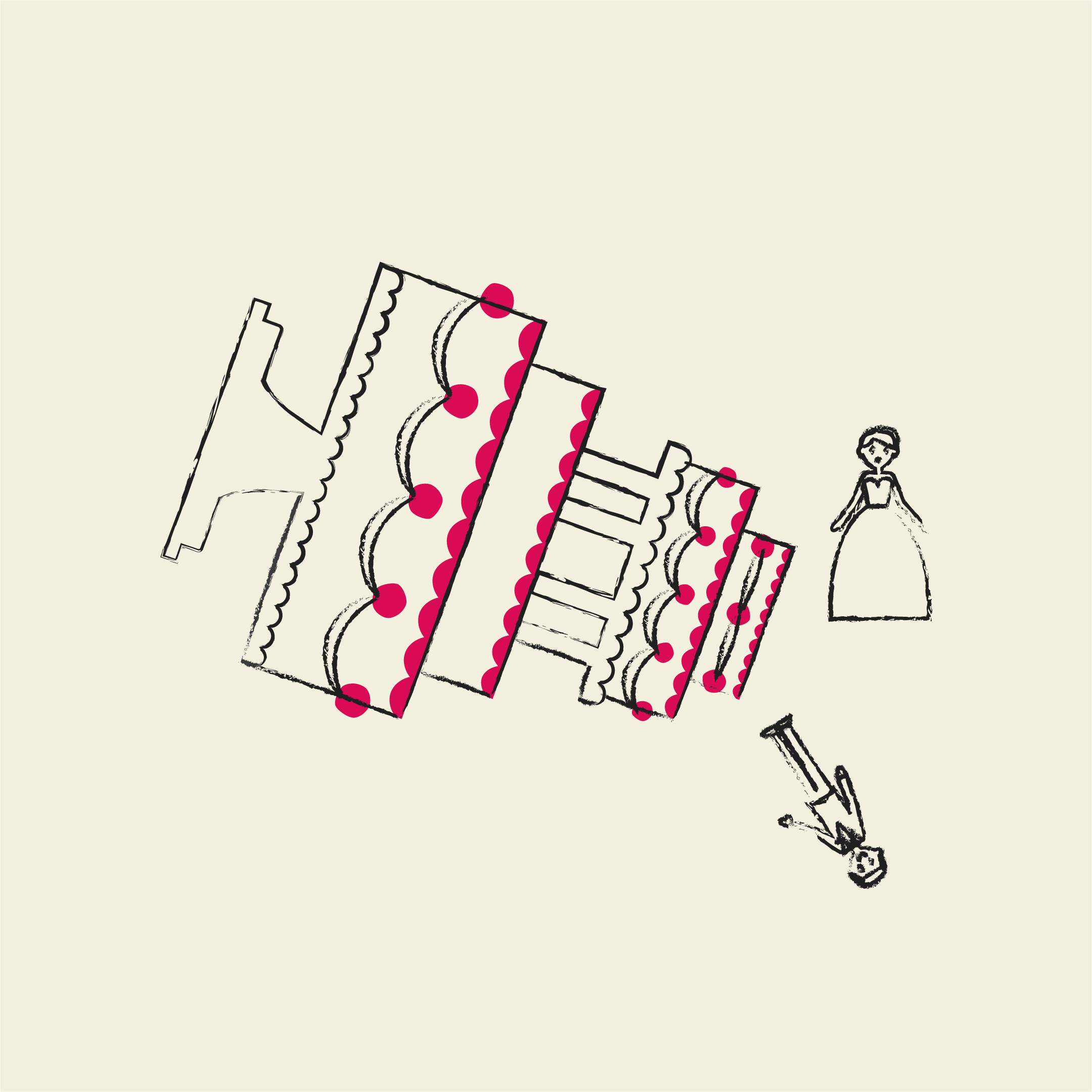The Young Feminists Rejecting Marriage
Bihon communities in South Korea are trading in the nuclear family for friends, ambitions, and experiences.
JANUARY 26, 2024
In Korean, the term for “single” or “unmarried” is mihon. Hon means “marriage”; the prefix mi- means “not yet.” Put together, the word implies that marriage is a natural stage in any given person’s life. Over the last eight years, feminists in Korea have increasingly pushed back against this idea. One result has been the emergence of a new term: bihon, or “not married:” a single life by choice and forever.
Bihon is not so much a movement against marriage as it is a community of people who don’t want to get married, often highly online and spontaneous. They represent one corner of contemporary youth feminism alongside other buzzwords, ideas, and hashtags. Using the word to describe oneself has become a particularly visible way for people to bypass the nuclear family and build mutual support networks in the face of many countervailing forces: tradition, social pressures, and intense heteronormativity more generally.
The term bihon first emerged around 2007 but entered the mainstream between 2015 and 2017 as part of a suite of other bi- compounds collectively known as “4B”: not married (bihon), not dating (biyeonae), not having sex (bisekseu), and not having kids (bichulsan). “4B” appeared online during a particularly vibrant and fractious period for forum-based Korean feminism, when the tremendous ability of feminist sites to affect public conversations around gender inequality was nevertheless mitigated by fissures among feminists over issues such as gender essentialism. “4B”’s prevalence peaked around 2020, first in earnest and later among social conservatives interested in blaming feminists for population decline: women’s liberation, they claim, has come at the cost of marriage and motherhood.
While three of the four Bs largely dropped away with the passage of time, the idea of bihon has survived and even thrived. Virtual and offline bihon communities support non-marriage-based families and offer social solidarity and friendship in a choice that Korea’s mainstream often stigmatizes as eccentric or failed. The discussion of alternative family structures has also paved the way for queer communities since the government still does not recognize gay marriage. Following the lead of bihon’s feminist origins, some young men, too, have begun to describe themselves as bihon.
The bihon rhetorical style emphasizes that unmarried life need not be unhappy or lonely. This turn inward toward one’s own life and well-being is part of what marks the style of young feminists (or “youngfemi”) from Korean feminisms of previous generations. The tone of the conversation around bihon life is warm and inviting. Its books, its independent magazines, its videos and podcasts focus in part on showing that people who choose not to get married can and do lead happy lives, filled with friends and ambitions and experiences. Below are some examples of how the bihon community has explained and expressed itself over the past five years:
Podcast: Behonsé hosted by Kwak Minji
For the past four years, Behonsé has chronicled the lives of bihon Korean women over the course of more than 200 episodes. The name means “Unmarried World,” but sounds like “Beyoncé,” and its subtitle is “All the Single Ladies.” Kwak describes the program as being about “sharing episodes from a diverse range of bihon lives: everyday stuff, geeking out, relationships, books, movies,” in the service of “building a happy community of listeners together.” Listeners are frequently guests, and vice versa; the vibe is more conversational than confrontational. Guests have shared memories of their school days, talked about caring for and living with elderly parents, and discussed how they confronted difficult questions such as “Why are you still single?” on Korean holidays. Kwak’s early episodes were charmingly improvised (early on, she says, “I’m not sure how to do a podcast”), but the show has now grown to the point where it can do multi-show arcs (such as a recent series on “Failed Love”), host music episodes, and tour in other cities.
Since its launch in 2019, the magazine Bi-pyeong (whose title is also a pun: bipyeong normally means “critique”) presumes its readers share a general background in the world of feminist theory, but its own focus is bracingly autobiographical and rooted in daily life. In its Fall 2023 issue on “Breakages,” essays address such experiences as being the only queer woman in a class on psychoanalysis, moving on one’s own to Australia, and dealing with the anxieties provoked by a broken door lock. Other past issues’ themes have included “Ambition,” “Home,” and “Parallel Lines.” The magazine’s tone is sisterly, in the Korean sense of an older sister looking out for you: women offering, and looking for, affirmation that someone else has gone through what you have.
Study: “Writing Life the Way I Want,” by Kang Miseon, Kim Seong Hee, and Jung Inhye
To many women, the decision to opt out of marriage entirely represents a hard rejection of misogyny, structural inequality, and the idea that women need men. Yonsei University researchers Kang, Kim, and Jung interviewed Korean women on their commitment to the bihon and/or “4B” lifestyles. One woman in her twenties said that watching her parent’s relationship convinced her that the difference in economic power between herself and her boyfriend would “leave her feeling permanently subjugated,” unable to “keep living a life to her fullest capacities.” Another interviewee recalled that the high-profile 2016 murder in the Gangnam district of Seoul (a woman was stabbed to death by a mentally ill man who was convinced that woman were ignoring him) led her to take more seriously the social critiques she’d previously dismissed in her gender studies classes. Awakened to how the patriarchy influenced and structured her life — the wage gap, even the marketing of boy bands as crush objects — rejecting marriage offered a way out: “I realized I had to get out of here fast and go live my life.”
Anthology: Flute-Playing Women: Lifestyle, Sexuality, and Intimacy by Kwon Sarang, Seo Hanna, and Yi Min-gyeong
The three writers contributing to this 2020 anthology all take pains to map out how independence is possible in ways unbound from the nuclear family. Kwon describes her experience living with other adult women as roommates, which is an uncommon choice in Korea, where living with one’s parents till marriage remains normal and living alone can be prohibitively expensive. Seo’s essay describes in detail the process of finding, then leaving, a relationship with a woman, and navigating each other’s domestic spaces along the way. Using stories from her life as a writer and teacher, Yi addresses the need to shatter the myths that keep women from trusting each other: “When people say your friend’s claims she won’t get married are the surest sign she’s going to be the first to do so — that’s just a way of stopping women from saying so, and so the myth takes on a new life.” The collection offers a lively portrait of three different but mutually supportive forms of women’s independence in contemporary Korea.
Article: “The South Korean woman who adopted her best friend,” by Hawon Jung
The notion that a woman might simply be happy on her own carries a political charge. Journalist Hawon Jung writes about Eun Seo-ran, a woman who adopted her best friend to be able to live with her as family. “We are not romantically involved or trying to get married. And even if we are, we wouldn’t be able to marry since same-sex marriage is not legal in South Korea,” she explains in the article. Adoption represented their best way to ensure rights around medical care, work leave, and funeral arrangements. “I came to believe that a real family is those who share their lives while respecting and being loyal to each other, whether or not they are related by blood or marriage.”
✺
Some feminist scholars have bristled at what they see as a form of feminism that dovetails with lifestyle-oriented self-help; previous Korean feminist movements were more entangled with the politics of the labor movement or more focused on academic theory. But the bihon style of engagement has served as one indignant response to the gender war that has shaped Korean politics over the past decade.
The People Power Party, the country’s major conservative party, narrowly won the last presidential election in 2022 in part on its appeals to male voters’ sense of disempowerment, including a vow to dismantle the Ministry of Gender Equality and Family, which was formed in the late 1990s with a mandate to promote women’s rights. Current President Yoon Suk-yeol argued that getting rid of the ministry would strengthen “the protection of women, families, children and the socially weak” — in large part by protecting men. South Korean news maintains a persistently apocalyptic tone about the nation’s declining rate of marriage and childbirth, which currently sits around 0.8 children per woman, the lowest in the world. (One article referred to the situation as a “worse than worst case”; a researcher made headlines with the wildly extrapolated conclusion that there would be no South Koreans left by 2750.) The obsession with fertility constantly and alarmingly reinforces the old idea that the proper social function of women is reproduction. Current policies also do little to address underlying issues, such as challenging workplace culture around parental leave (despite a legal entitlement to a full year for both parents), the gender wage gap, and the high cost of education.
Bihon does more than put forward an alternative to a life with marriage; it shifts the terms of the conversation about its necessity. It exposes the degree to which Korean society privileges the nuclear family and punishes people who choose to sidestep it. And it shows that a single life can be one of joy, not resignation — and that being single does not have to mean being alone. Koreans — particularly Korean women — are told their entire lives that marriage is imperative for a successful and complete life. As it turns out, it might be the opposite: marriage needs them more than they need marriage.



